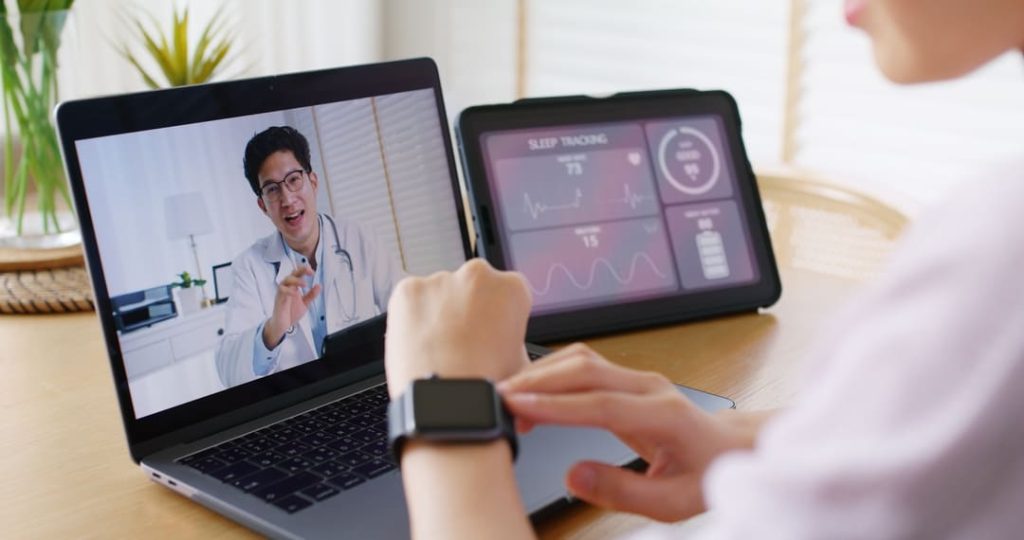VA Secondary Conditions to Anxiety and Depression
By Telemedica
8/6/2024
Table of Contents
- What are VA Secondary Conditions?
- VA Secondary Conditions to Anxiety and Depression
- Nexus Letter for Secondary Condition to Anxiety and Depression
- Service Connecting VA Secondary Conditions
- Filing a VA Claim for Secondary Conditions
- VA Ratings for Anxiety and Depression
- Conclusion
Anxiety and depression are common mental health issues among veterans, and they can often lead to or exacerbate secondary conditions.
Understanding the various VA secondary conditions to anxiety and depression is crucial, as these conditions can significantly affect your quality of life.
This guide examines common VA secondary conditions to anxiety and depression. We’ll discuss VA ratings for secondary conditions, how to file your VA claim for a secondary condition, and steps to service-connect your condition.
We’ll also take a closer look at the value of a nexus letter for secondary conditions.

What are VA Secondary Conditions?
VA secondary conditions occur when a service-connected disability causes or aggravates a new or pre-existing condition, illness, or injury.
For example, suppose you’re service-connected for anxiety or depression, and your anxiety/depression causes another VA-ratable condition. In that case, you may qualify for a VA rating for your secondary condition (e.g., sleep apnea).
In addition, anxiety and depression can be secondary conditions if they are caused secondary to a different primary service-connected condition (e.g., GERD)
VA Secondary Conditions to Anxiety and Depression
There are many VA-ratable conditions that can manifest due to your service-related anxiety or depression. Below are some of the most-common VA secondary conditions to anxiety and depression.
Headaches/Migraines
Anxiety and depression can trigger or worsen migraine headaches, leading to severe pain and disability. It’s not uncommon for migraines to be accompanied by vomiting, nausea, and sensitivity to light and sound.
These headaches can range from tension headaches to migraines and are often exacerbated by the stress and emotional turmoil associated with mental health conditions.
In addition, research shows that those who experience migraines with aura (a classic migraine) are more likely to develop depression than those without it.
While waiting for an official diagnosis, you can help manage your migraines by:
- Staying hydrated
- Using a cold compress
- Drinking ginger tea
- Find a calm environment and turn the lights off
- Take small sips of a caffeinated beverage
Finally, if you can keep a migraine diary, it may help you determine potential triggers, how long the migraines lasted, and what treatment methods helped.
VA Rating for Migraines Secondary to Anxiety and Depression
The VA rates migraines secondary to anxiety and depression at 0%, 10%, 30%, and 50% under diagnostic code (DC) 8100.
When filing your VA claim for migraines secondary to anxiety, it’s crucial to include medical evidence. This evidence can strengthen your claim and increase the likelihood of a successful outcome.

Sleep Apnea
Anxiety and depression can contribute to the development of obstructive sleep apnea, which is characterized by pauses in breathing during sleep. In addition, anxiety can exacerbate already diagnosed sleep apnea by making it harder to fall asleep.
There are three types of sleep apnea:
- Obstructive Sleep Apnea (OSA) is the most common type of sleep apnea and occurs when the throat muscles relax and block airflow to the lungs.
- Central Sleep Apnea (CSA) occurs when the brain fails to send the correct signals to the muscles that control breathing.
- Complex Sleep Apnea or Treatment-emergent central sleep apnea occurs when obstructive sleep apnea turns into central sleep apnea after receiving treatment.
When you can identify specific triggers, you can determine the best treatment methods.
Common triggers for sleep apnea caused by mental health disorders include:
- Physiological – If your anxiety or depression has also caused chronic stress, you may be prone to a reduced quality of sleep.
- Psychological – If you’re prone to nightmares or worry about not being able to breathe while sleeping, you’re more likely to experience sleep disturbances.
- Environmental – Specific lifestyle factors, including substance use, can worsen sleep apnea and make it challenging to get quality sleep.
VA Rating for Sleep Apnea Secondary to Anxiety and Depression
The VA rates sleep apnea secondary to anxiety and depression at 0%, 30%, 50%, or 100% under DC 6847-Sleep Apnea Syndromes (Obstructive, Central, Mixed).
In addition, the VA requires you to attend a sleep study to receive an accurate sleep apnea diagnosis and eventual VA rating.

Hypertension (High Blood Pressure)
It comes as no surprise that anxiety and depression are likely to elevate your blood pressure. Chronic stress increases your body’s production of stress hormones like cortisol, which puts you at risk for long-term increases in blood pressure.
While anxiety doesn’t cause long-term high blood pressure, bouts of anxiety can cause temporary elevations in blood pressure. However, these temporary elevations can damage your blood vessels, kidneys, and heart.
To avoid unnecessary rises in blood pressure, it’s important to avoid smoking and alcohol, and maintain a healthy diet.
In good news, studies show patients with anxiety and/or depression had faster rates of hypertension control because they demonstrated more primary care and specialty visits.
If lifestyle changes don’t improve your hypertension, your healthcare provider may prescribe medication to help regulate your blood pressure.
VA Rating for Hypertension Secondary to Anxiety and Depression
The VA rates hypertension at 10%, 20%, 40%, and 60% under DC 7101 – hypertensive vascular disease. Your VA rating for hypertension secondary to anxiety and depression will depend on your diastolic and systolic pressure levels.
Gastroesophageal Reflux Disease (GERD)
GERD is a condition where there is a backflow of stomach acids into your esophagus. Stress and anxiety can increase the production of stomach acid, leading to GERD.
A 2023 study found that up to 1 in 3 subjects with GERD experience anxiety and depression. While genetics play a significant role in developing GERD, it’s also common in veterans.
Potential symptoms of GERD include:
- Difficulty breathing
- Nausea
- Heartburn
- Vomiting
In addition, if your anxiety and depression are affecting your sleep, you may be prone to GERD since lying down frequently worsens the condition.
Your doctor may prescribe medication to help your condition, with some cases requiring surgery. You can help manage GERD with lifestyle changes, including:
- Dietary changes
- Losing weight
- Quitting smoking
VA Rating for GERD Secondary to Anxiety and Depression
The VA rates GERD from 0% to 80%, with breaks at 10%, 30%, and 50%. You can find the schedule of ratings for GERD under DC 7206.
Your GERD secondary to anxiety VA disability rating will depend on the severity of your esophageal stricture and its impact on your health.
Irritable Bowel Syndrome (IBS)
While the exact cause of IBS isn’t well understood, there seems to be a significant link between its development due to anxiety and depression.
For example, anxiety and depression can worsen IBS symptoms, leading to abdominal pain, bloating, and changes in bowel habits.
Symptoms of IBS include, but are not limited to:
- Cramping or bloating
- Abdominal pain or discomfort
- Excessive gas
- Indigestion
- Mucus in your stool
- Changes in your bowel movement patterns
It’s recommended you keep a journal of your symptoms to share with your doctor. While many cases of IBS can be treated with lifestyle changes, it’s vital you talk to your doctor if your anxiety and depression is severe enough to cause significant changes to your GI tract.
The following are not signs of IBS and are reasons to get medical attention:
- Bloody stool
- Chronic diarrhea
- Severe abdominal pain
- Bowel movements that completely stop
VA Rating for ISB Secondary to Anxiety and Depression
The VA rates IBS secondary to anxiety and depression using DC 7319 with ratings at 10%, 20%, and 30%, depending on factors like abdominal bloating, change in stool frequency, and subjective distension.
TMJ with Bruxism
Temporomandibular joint (TMJ) disorder is a condition affecting the jaw joint and the muscles responsible for moving your jaw. TMJ with bruxism is a condition that causes you to clench, grind, or gnash your teeth while you’re awake or asleep.
While TMJ can vary from one person to the next, common symptoms include:
- Difficulty opening and closing your mouth
- Tooth pain or sensitivity
- Clicking or popping sound when opening and closing your mouth
- Pain or tenderness in your jaw
- Neck pain, earaches, or headaches
Research shows a significant link between bruxism and mental health disorders, especially in emotional disorders and occupational exposures.
For example, if you are anxious, it’s common for the muscles in your jaw to become tense or tight. When you clench your jaw or grind your teeth, it can lead to inflammation and muscle tension in your jaw joint, which can cause TMJ.
Your healthcare provider can help with TMJ treatment methods; however, many find relief with meditation and mindfulness techniques.
VA Rating for TMJ with Bruxism Secondary to Anxiety and Depression
The VA rates temporomandibular joint disorder (TMD) under DC 9905, with ratings ranging from 10% to 50%, with breaks at 20%, 30%, and 40%.
Your TMJ with bruxism secondary to anxiety VA rating will depend on the severity of your symptoms and limitations, including the extent of jaw movement.

Nexus Letter for Secondary Condition to Anxiety and Depression
Claims for VA secondary conditions to anxiety and depression benefit significantly from a nexus letter with high-probative value.
A nexus letter with high-probative value should include:
- The physician’s credentials, particularly ones that make them a trustworthy source for the following opinion
- A reference indicating that the physician composing the letter has thoroughly reviewed the veteran’s medical records and military records that pertain to the claim.
- The physician’s opinion regarding the cause of the current diagnosed condition and its relation to the veteran’s military service.
- Medical rationale that fully supports the physician’s opinion.
See Also: Nexus Letter for Secondary Conditions
Service Connecting VA Secondary Conditions
To receive a VA rating for secondary conditions to anxiety and depression, you must service-connect your condition.
A VA service connection for secondary conditions requires the following:
- A current medical diagnosis (documented in a medical record) of the secondary VA disability you’re attempting to link to the current service-connected disability (anxiety and depression) AND
- A current service-connected primary disability (anxiety and depression) AND
- Medical nexus evidence establishing a connection between the service-connected primary condition (anxiety and depression) AND the current disability you’re trying to connect secondary
Filing a VA Claim for Secondary Conditions
You can file for VA secondary conditions to anxiety and depression by following the steps below:
- Go to VA.gov and open a new claim using the online VA Form 21-526EZ– Application for Disability Compensation and Related Compensation Benefits
- You can also print the form, fill it out, and send it to this address:
Department of Veterans Affairs
Claims Intake Center
PO Box 4444
Janesville, WI 53547-4444
- You can also bring your application to a VA regional office near you
VA Ratings for Anxiety and Depression
A secondary service connection requires a primary service connection.
For example, in order to receive a secondary service connection for bruxism caused by your anxiety (e.g., a bruxism secondary to anxiety VA rating), you must first have a primary service connection (and VA rating) for your anxiety.
The VA rates anxiety and depression under § 4.130 Schedule of ratings—Mental disorders, with ratings ranging from 0% to 100%, depending on the severity of your condition.
It’s important to understand that you can’t get separate ratings for anxiety and depression, as all mental health conditions are rated under the same VA criteria.
Conclusion
Recognizing VA secondary conditions to anxiety and depression is crucial for comprehensive care and management of your health.
If you need a nexus letter to provide that missing link between your disability and an in-service event, injury, or disease, Telemedica is here as your nexus letter expert.
We can connect you with a licensed provider who understands your unique needs through our secure, private, and convenient platform. Contact us today!